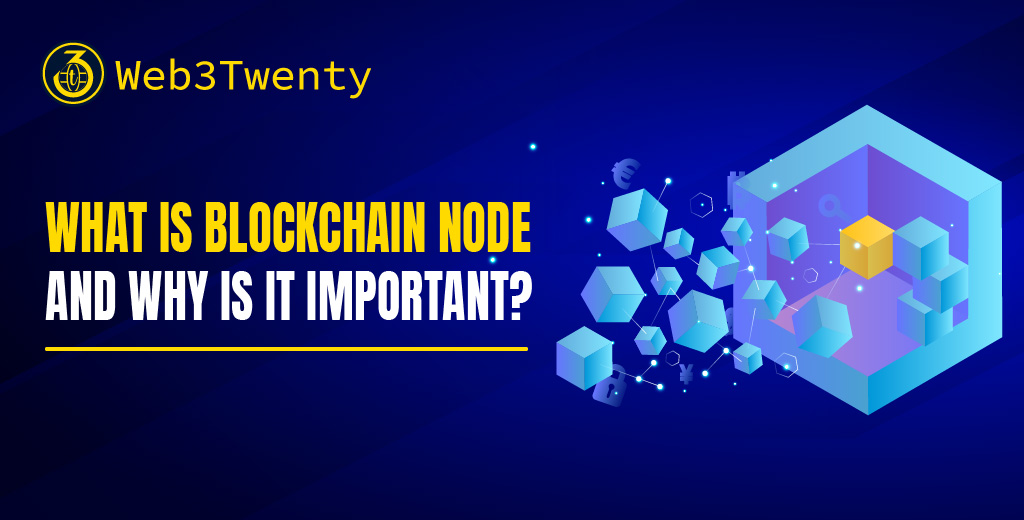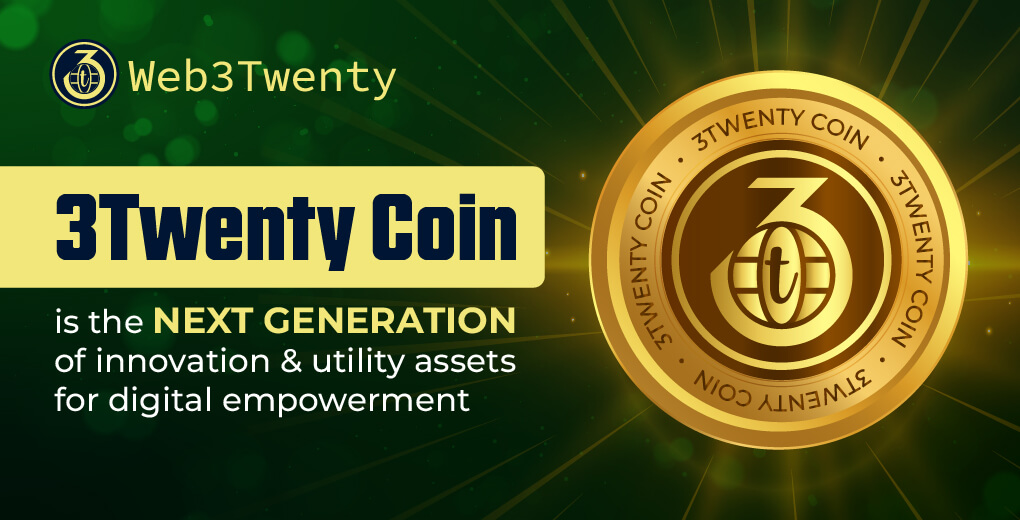- info@web3twenty.com
- 7MF2+36Q, Road 5549, Galali, Bahrain
What is Blockchain Node and Why is it Important?

What is Blockchain Node?
A blockchain node is a computer or device that acts as part of a blockchain network. This helps confirm transactions, store data, and maintain the integrity of the blockchain. Each node in a blockchain network connects, ensuring the network's security, transparency, and decentralization.
Types of Blockchain Nodes
A blockchain node is a computer that participates in the blockchain network, storing a copy of the blockchain's data and helping to validate and relay transactions. Below are some blockchain nodes and their important roles:
Full Node: A full node stores the entire blockchain history, ensuring that all transactions and blocks comply with the network's rules. It helps to validate transactions and blocks before adding them to the blockchain. Full nodes contribute significantly to decentralization and security.
Light Node: A light node, or Simplified Payment Verification (SPV) node, only stores a subset of the blockchain data, typically just the block headers. It relies on full nodes for transaction validation but still interacts with the blockchain network to send and receive transactions.
Miner Node: In proof-of-work blockchains, a miner node competes to solve complex mathematical puzzles and add new blocks to the blockchain. Miner nodes are rewarded with cryptocurrency for successfully adding a block.
Validator Node: A validator node is a participant in a blockchain network. It checks transactions added to the blockchain to ensure that they are correct and follow the rules. This process ensures the integrity of the blockchain. Validator nodes are important. They play a major role in decentralizing the network.
Archival Node: An archival node stores the complete history of blockchain data, including every block and transaction. It is more resource-intensive than a full node and is typically used for data retrieval and historical queries.
Relay Node: A relay node facilitates the transmission of data between other nodes on the network, helping to ensure the quick propagation of transactions and blocks without directly validating them.
Each type of node plays a critical role in maintaining the decentralized, secure, and functioning nature of the blockchain network.
Why are Blockchain Nodes Important?
Blockchain nodes play a vital role in the functioning and security of the blockchain network. The importance of these nodes can be broken down into several key areas:
Transaction Verification: Every time a transaction occurs on the blockchain, it is broadcast throughout the network. Nodes verify the accuracy of these transactions by checking conditions such as whether the sender has enough balance and if the digital signature associated with the transaction is correct. This verification process significantly reduces the risk of fraud, enhancing the overall trustworthiness of the system.
Data Preservation: Each node stores a full or partial copy of the blockchain and maintains a permanent record of all transactions. This transparency makes the network highly reliable. If any discrepancies occur, nodes can refer back to their copies to verify the correct sequence of transactions, providing an efficient mechanism for maintaining the integrity of the data.
Decentralization: Decentralization is one of the hallmark features of blockchain technology that sets it apart from traditional systems. Blockchain nodes ensure that no single entity controls the network, providing users with greater independence. This structure helps prevent the concentration of power, making it difficult for any third party to manipulate or control the data.
Security: The network's distributed nature means that data is stored in multiple locations. Each node contributes to the overall security of the blockchain by serving as a checkpoint against potential attacks. If an unauthorized attempt is made to alter data, other nodes will easily spot the discrepancies because they hold an unaltered copy of the blockchain. This ability to compare data helps maintain the security and trustworthiness of the network.
Network Stability: Nodes collaborate to ensure that the network remains active and operational at all times. Their collective participation helps to prevent downtimes and maintain a smooth flow of transactions. When one node goes offline, others pick up the slack, ensuring that the network functions as intended without interruptions.
How Do Blockchain Nodes Work?
Blockchain nodes function according to a specific protocol and engage in several steps to maintain the network:
Transaction Acceptance: When customers make a transaction, it's far broadcast to the complete blockchain network. Nodes accept this transaction and begin the verification process.
Transaction Verification: Nodes play an important position in making sure the validity of transactions. This is carried out by checking the sender`s stability and verifying the accuracy of virtual signatures. This technique allows for holding every transaction honestly and accurately.
Data Storage: After verifying a transaction, the node shops that statistics in a block. Depending on the kind of node, it allows make certain the transparency and protection of the community through storing a complete or partial copy of the blockchain.
Consensus Participation: For the network to reach an agreement on the state of the blockchain, nodes participate in a consensus process, such as Proof of Work or Proof of Stake. This process prevents fraudulent transactions from being added to the chain.
Block Addition: Once a consensus is reached, the verified transactions are combined into a block and added to the existing blockchain. Each node updates its copy to reflect this new addition, ensuring the unity and consistency of the network's data.
Broadcast to the Network: Finally, the brand-new block is broadcast to all nodes in the network, which test and replace their versions accordingly.
Conclusion
Blockchain nodes are the lifeblood of blockchain technology, ensuring its security, transparency, and efficient operation. By participating in transaction verification, data preservation, and maintaining decentralization, nodes play a pivotal role in the functionality of the entire network. Their collaborative efforts make blockchain a durable and trustable system capable of transforming industries. As we continue to explore the potential of blockchain technology, understanding the role of blockchain nodes becomes increasingly vital.






